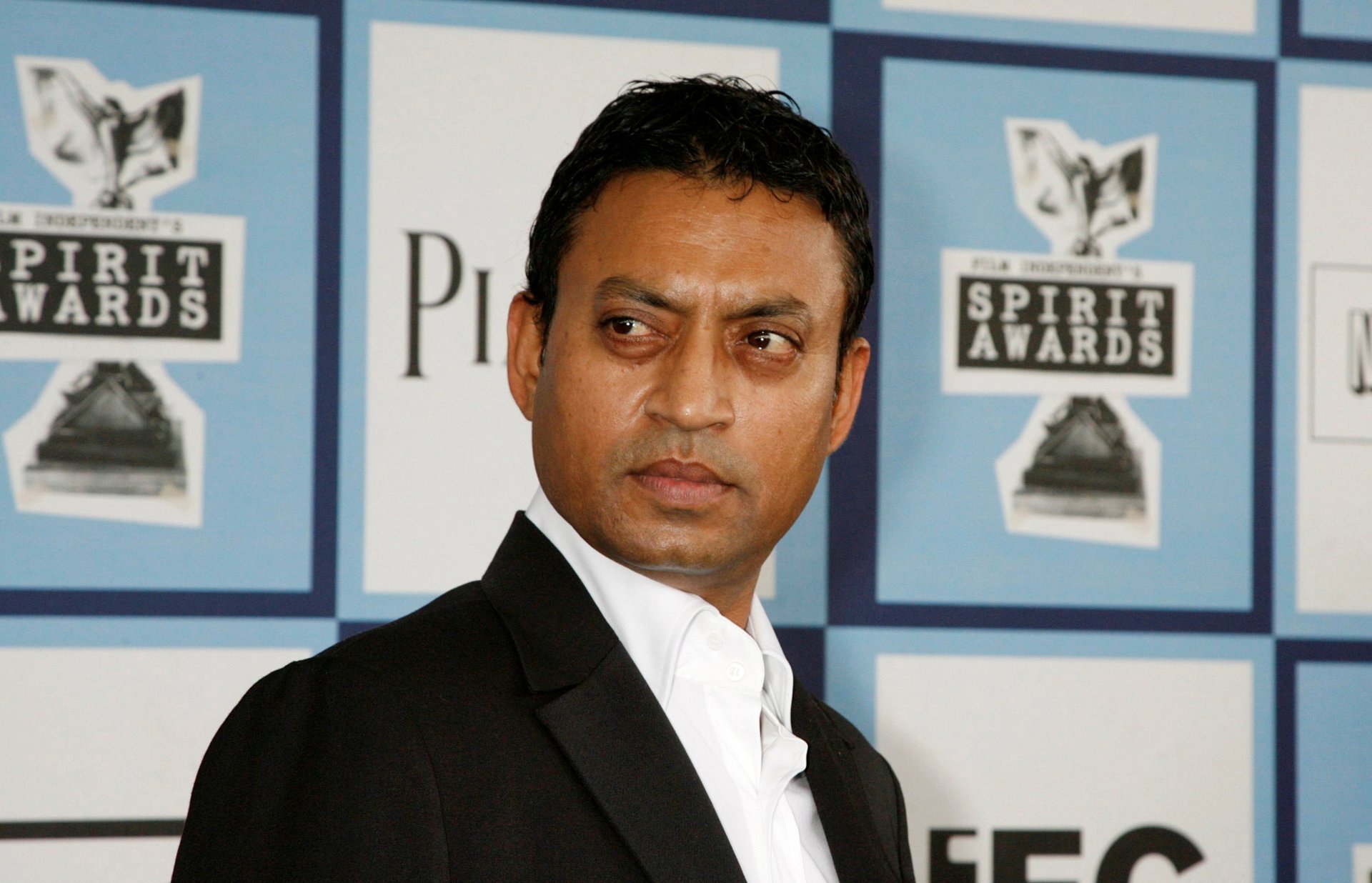Irrfan Khan was a reluctant superstar, and a rare global success for India
Was Irrfan Khan a Bollywood star? Never.


Was Irrfan Khan a Bollywood star? Never.
Imagine: Somebody who was uncomfortable dancing. Nervous about the idea of on-screen romance. Never bothered with a six-pack. Not traditionally handsome. Had no industry connections. Spoke with a strong Indian accent throughout his career. And, above all, displayed humility and modesty throughout his life. His peers, often more comfortable with their stardom, had deep respect for him.
“The Great Khan” was diagnosed with a tumor in 2018. After months of treatment in the UK, he returned to India this year, but died at the age of just 53 in Mumbai this morning (April 29).
But the recipient of the Padma Shri—the fourth-highest civilian award in India—had to fight to become an actor. Growing up in Jaipur, his parents disapproved of his passion for cinema, but he found his way to Delhi’s National School of Drama, admitting he’d “lied shamelessly in the application form.”
“If it doesn’t work out, my life is over. I’ll either go mad or burn all of Jaipur,” he told HuffPost India.
It did work out, but he wasn’t an overnight success. In the 1990s, he had roles on Indian TV, in lurid serial dramas. But by the late 2000s, he would become one of the rare Indian actors to successfully make it in Hollywood.
Asif Kapadia’s The Warrior (2001), a British-Indian film that won major awards in the UK, and Vishal Bhardwaj’s Maqbool (2003), put Khan on the map.
From there on, he began appearing in a wide range of international productions. The first was The Namesake—Mira Nair’s 2007 adaptation of a Jhumpa Lahiri novel about a couple that migrates from Kolkata to New York. Others included Inferno (in which Tom Hanks confessed to being “beguiled” by Khan’s “magic eyes”), Jurassic World, The Amazing Spider-Man, Life of Pi, and the multiple Oscar-winning Danny Boyle film Slumdog Millionaire. But despite his success, he wasn’t afraid to tell the studios what they needed to do.
“It will take time before Hollywood is free to write a story about an Indian guy,” he told The New York Times in 2012. “Unless it’s about the dark side of India, like ‘Slumdog’. They don’t want to see a normal India.”
He was also outspoken about sexual harassment in the Indian film industry, saying it had happened to him “lots of times” and calling out the underlying social realities that enable such a “disease” in India. “Such indications are given to both men and women, but women face it more,” he said.
He took unusually thoughtful positions, often standing apart in an industry that tries to stay out of politics. He had royal blood, too. Born Sahabzade Irfan Ali Khan, he referred to himself only as Irrfan, a deliberate misspelling and also a rejection of references to religion, lineage and caste.
When he received confirmation of his cancer diagnosis, he quoted Gone With the Wind novelist Margaret Mitchell: “Life is under no obligation to give us what we expect.”